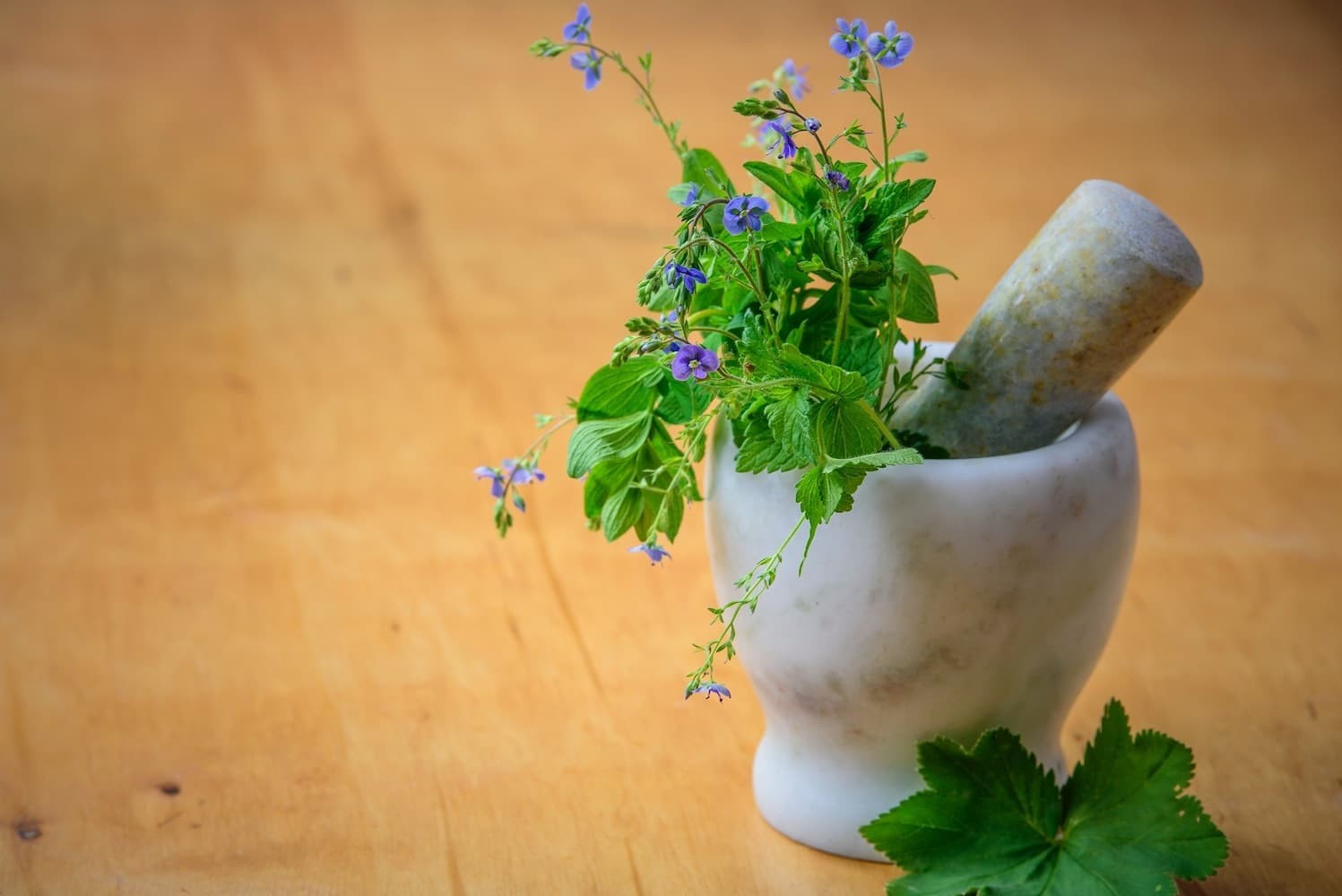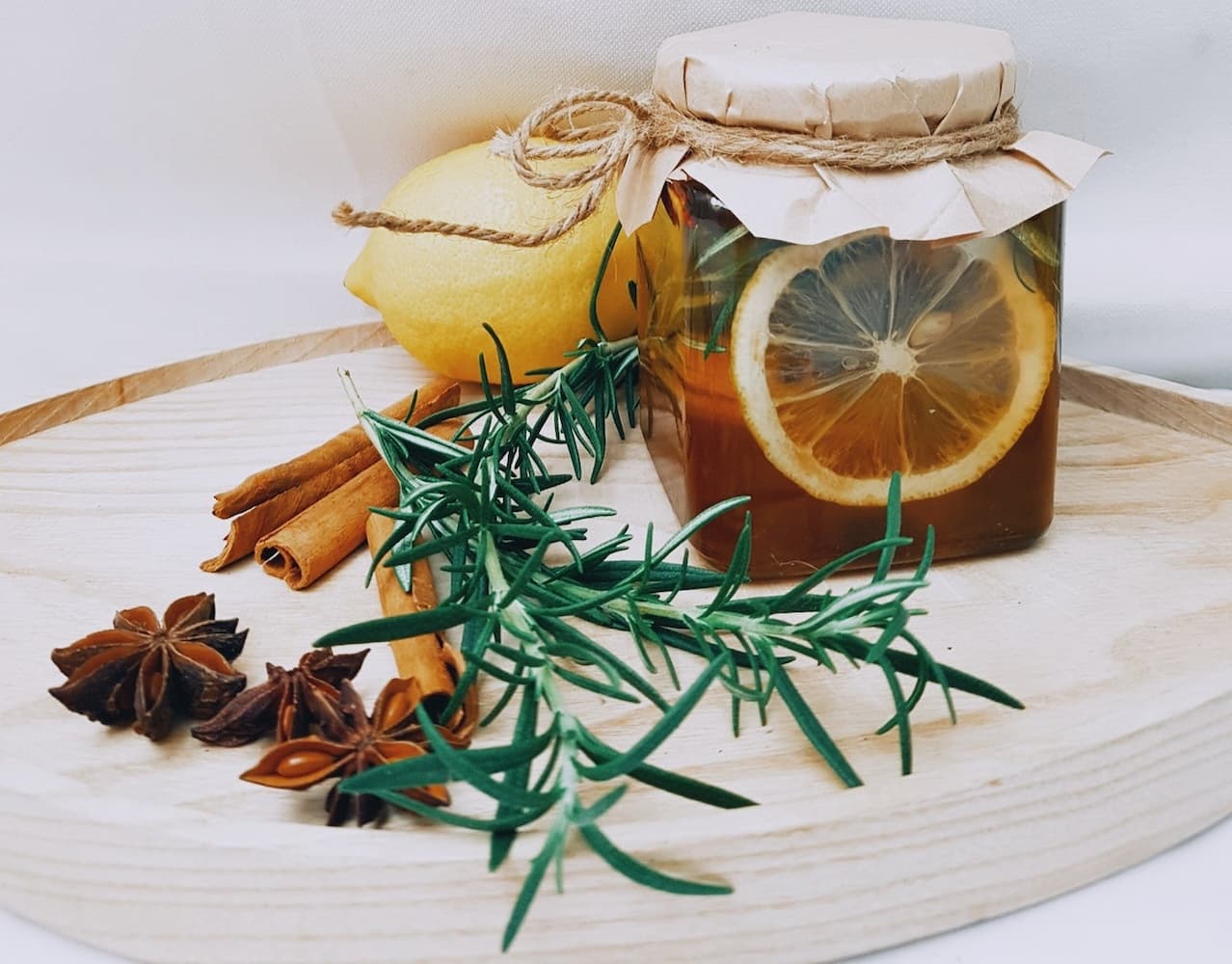
Do you want to fill your medicine cabinet at home with tiny jars of capsules, teabags and tinctures which you made yourself using fresh herbs?
Whether you're a naturopath, an Ayurvedic practitioner or new to complementary medicine, studying herbal medicine will benefit you and your profession as you'll be able to use the knowledge that you gain to heal and restore the health of your clients. This article explains what herbal medicine is, why you should learn it and how you can benefit from it.
What is Herbal Medicine?
Herbal medicine refers to the use of natural substances derived from medicinal plants to treat a variety of health conditions and promote overall wellness. The objective of herbal preparations is to restore balance to the body and boost the functions of its different organs and systems.
Herbs are employed in different healing modalities, including Traditional Chinese Medicine (TCM), Ayurveda, naturopathy and Western herbal medicine, among others, to improve the body's circulatory system, energy levels, nervous system and immune system, as well as managing anxiety and depression. This just goes to show that the therapeutic effects of herbal products go beyond improving human physiology; they also address mental and emotional issues that manifest as physical symptoms.
Why Study Herbal Medicine?
 If you're interested in the medicinal value of plants and want to learn how to make homemade remedies which you can incorporate into your practice, taking a course in herbal medicine is the ideal route for you. You will learn about different medicinal herbs, the distillation process for preparing herbal medications, how to administer them orally and topically, and so much more.
If you're interested in the medicinal value of plants and want to learn how to make homemade remedies which you can incorporate into your practice, taking a course in herbal medicine is the ideal route for you. You will learn about different medicinal herbs, the distillation process for preparing herbal medications, how to administer them orally and topically, and so much more.
You will also have the opportunity to study the individual medicinal properties of plants and how they are used in traditional medicine, particularly in the formulation of pharmaceutical drugs and dietary supplements like folic acid and chamomile tea. Clinical studies on the use of common herbs among patients confined in the internal medicine department of hospitals will be taken up during lectures. This will lend some validity to reports on the adverse effects or beneficial effects of herbal products on a wide range of ailments and chronic conditions.
What are the Career Outcomes for Herbalists?
Herbs are an important aspect of natural medicine. Being well-equipped with the knowledge and skills to use them in treating different kinds of ailments will make you indispensable not only to the healthcare system but also to public health per se.
As a qualified herbalist and registered member of the Australian Register of Naturopaths and Herbalists (ARONAH), the country's peak organisation for naturopaths and herbalists, you can explore a range of career options. In addition to setting up your own private practice where you can hold one-on-one consultations, you can collaborate with other health practitioners who use common herbs to treat the mind, body and emotions such as naturopaths and Traditional Chinese Medicine (TCM) practitioners.
With your qualification in herbal medicine, you can even cultivate a herbal garden, process your own herbal medicines and sell these in your own health store or supply to other accredited stores. However, you must comply with the laws of the Australian Register of Therapeutic Goods regarding the sale of complementary medicine.
You also have the option to get into the manufacturing or research field and handle the product labels of natural products sold in the market.
What Are Your Study Options?
Completing a bachelor's degree in western herbal medicine will provide you with the qualification that you need to practise herbal medicine on a professional level. However, if you're not sure about this three-year course and prefer to take smaller steps in your learning journey, you can start with a diploma-level qualification.
A course in naturopathy or Ayurveda covers the basic principles of herbal preparations, making it an ideal pathway for you before diving into a more comprehensive study. Try developing your own medicinal herbs for home use, and if the urge to take your knowledge further comes, you may proceed to enrol in a more advanced program. Many Australian students undertaking a course in medicinal herbs are given the option to complete their qualification on-campus or in a virtual classroom.
Distance education offers the same benefits as studying in a traditional classroom setup. You will be able to participate in lectures and group activities through the school's online learning management system. The same platform allows you to access homework, quizzes, exams, projects and your grades among others. Perhaps the only difference between online and on-campus learning is the fact that the former allows you more flexibility to study anywhere, anytime. It gives you the liberty to fit your study time around your other commitments so you don't miss out on important events.
Where Can You Study Herbal Medicine?

Where you study herbal medicine depends on your goals. If you're looking to become a registered herbalist in Australia and be able to manufacture and sell your own brand of herbal products, it would be best to enrol in a university or college that is recognised by the country's peak organisations for professional herbalists such as the ARONAH and Naturopaths and Herbalists Association of Australia (NHAA).
On the other hand, if you're simply curious as to how herbal medications benefit human health, signing up to short weekend courses, or perhaps attending a herbal medicine retreat, will introduce you to the plant kingdom and various herbal medications you can produce from their chemical compounds.
Once you have chosen a course provider, be sure to check their syllabus, tuition fees and delivery method before enrolling. Making sure that the program you get into conforms to your budget, schedule and interest, is the only way that you can ensure yourself of the best education in herbal medicine.
Let the Natural Therapy Pages' comprehensive list of qualified course providers assist you as you embark on your herbal medicine education.
|
Do you have a natural health & wellness business? |




